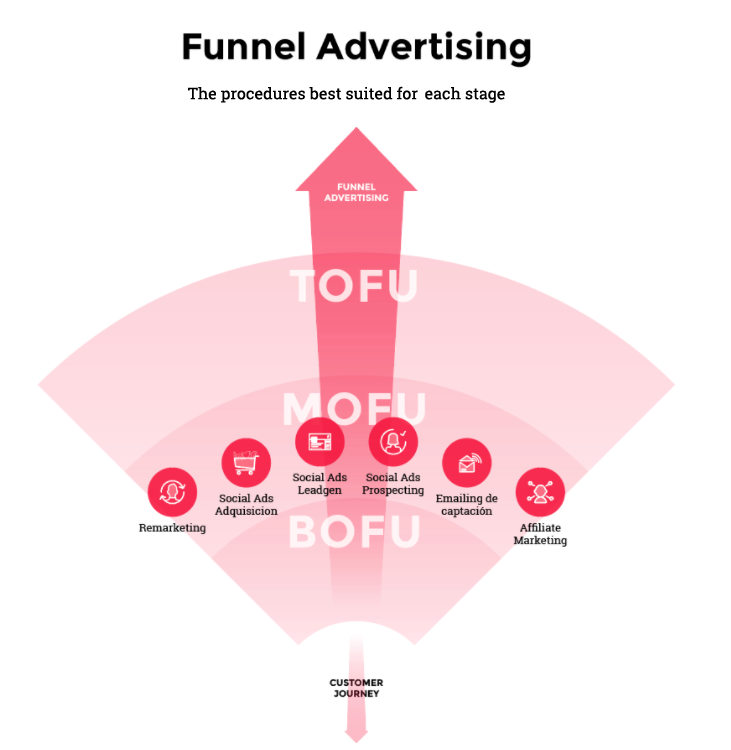MOFU is the stage where users already know their needs. Here, you should provide quality information that shows that your product or service is the best option for them.
October 2021
In the MOFU stage of the Funnel Advertising Methodology, the consumer already knows what types of products or services will satisfy their needs and has begun to browse through the available options. Your goal is to be among these options so you need to successfully communicate your company’s value in terms of brand, product, or service.

The actions best suited for this stage of the funnel are: